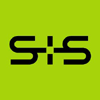At this year’s Interpack exhibition, S+S Separation and Sorting Technology of Bavaria (hall 13, stand 13A90) will launch the new, totally revised Raycon product inspection system. In redesigning the RAYCON concept S+S focused on sophisticated, proven X-ray technology and on components manufactured in house and from local suppliers. This ensures that Raycon X-ray systems meet the high quality demanded by food and packaging industry users. The addition of the S+S proven, modular conveyor belt systems means complete flexibility for the huge variation of products and applications.
S+S RAYCON product inspection system will consistently and precisely detect a multitude of contaminants such as magnetic and non-magnetic metals, glass, ceramics, stones, raw bones, and some types of plastics, even when products are packaged in aluminium or other metallic foils. RAYCON will also inspect for other product defects, e.g. broken, deformed or missing products, product clumps, air inclusions, and even over and underweights.
The latest generation RAYCON is absolutely state-of-the-art in terms of detection capability, radiation protection, and equipment safety. When properly used the X-ray scanner is absolutely safe for operators and for products. Radiation emissions are negligible many times lower than the statutory limits. EU directive 1999/2/EC explicitly allows X-ray systems for contaminant inspection even for organic food. Generally any reservations that did exist are a thing of the past now that X-ray technology is widely applied in the food industry. The additional benefits that innovative X-ray technology offers more than justify the expense involved in both acquisition and operation.
Franz Penn, S+S food industry product manager, in support of the company’s achievement, says: “Our objective is to provide a premium X-ray system of the highest quality. We can only do this by producing the system ourselves, and by carefully selecting reliable and premium quality components from suppliers. The new S+S RAYCON is not only ‘Made in Germany’, but predominantly ‘Made in Bavaria’.”










